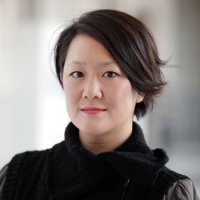At the Crossroads: COVID-19, Racism, and Disinformation
For more than a year, we have been fighting three viruses: COVID-19, racism and disinformation. For Asian Americans, concerns about COVID-19 are accompanied by fears of violence, with the number of reported attacks on Asian Americans surging during the pandemic as much as by 145%, according to a recent study by the Center for the Study of Hate and Extremism at California State University, San Bernardino. One cause of this increase is disinformation campaigns that specifically tie the spread of the pandemic to racist narratives, scapegoating Asian communities and Asian Americans as the agents for COVID-19.
The Woodrow Wilson International Center for Scholars invites you to join us for a program that will shed light on this convergence, by examining the impact disinformation has had on Asian American communities, and its impact on our global standing. What has been the impact of disinformation on Asian Americans? How are certain groups targeted in disinformation? What has been the impact of these trends on diplomatic relations with Asian countries as well as US standing in the region?
This event is co-sponsored by the Wilson Center's Science and Technology Innovation Program, Asia Program, the Kissinger Institute on China and the United States, and the Hyundai Motor-Korea Foundation Center for Korean History and Public Policy. It is held in partnership with the Asian American Journalist Association.
Agenda
- Introduction: Ambassador Mark Green, President, Director, & CEO, The Wilson Center
- Keynote address: Congressman Ted Lieu (D-CA 33rd District)
- Panel:
- Michelle Ye Hee Lee, Reporter, the Washington Post; President, Asian American Journalists Association
- Prof. Jonathan Corpus Ong, Associate Professor, Global Digital Media, University of Massachusetts Amherst
- Rui Zhong, Program Associate, Kissinger Institute on China, The Wilson Center
- Moderator: Jean H. Lee, Director, Hyundai Motor-Korea Foundation Center for Korean History and Public Policy, The Wilson Center
Questions for the panel can be submitted via email at asia@wilsoncenter.org, via Twitter @AsiaProgram, or when you RSVP for the event.
Quotes
-
Congressman Ted Lieu
-
Prof. Jonathan Corpus Ong
-
Rui Zhong
-
Michelle Ye Hee Lee
Speakers



Introduction

Keynote Speaker
Moderator

Journalist and former Pyongyang Bureau Chief, Associated Press
Hosted By

Science and Technology Innovation Program
The Science and Technology Innovation Program (STIP) serves as the bridge between technologists, policymakers, industry, and global stakeholders. Read more


Indo-Pacific Program
The Indo-Pacific Program promotes policy debate and intellectual discussions on US interests in the Asia-Pacific as well as political, economic, security, and social issues relating to the world’s most populous and economically dynamic region. Read more


Kissinger Institute on China and the United States
The Kissinger Institute works to ensure that China policy serves American long-term interests and is founded in understanding of historical and cultural factors in bilateral relations and in accurate assessment of the aspirations of China’s government and people. Read more


Hyundai Motor-Korea Foundation Center for Korean History and Public Policy
The Center for Korean History and Public Policy was established in 2015 with the generous support of the Hyundai Motor Company and the Korea Foundation to provide a coherent, long-term platform for improving historical understanding of Korea and informing the public policy debate on the Korean peninsula in the United States and beyond. Read more


